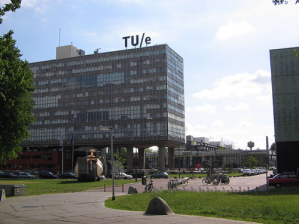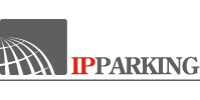Smart parking with IP Parking at TU/e Science Park

Technical University Eindhoven’s (TU/e) campus called Science Park is facing a double parking challenge. On one side parking spaces are decreasing and on the other side it is expected that the campus shall be used by an increasing number of motorists in the years to come. The solution for this situation can be found in the implementation of a parking management, space counting and guidance system based on License Plate Recognition by IP Parking.
Bert Verheijden, TU/e real estate managemer, says: "Decreasing the total number of outdoor parking spaces fits the joint ambition of the university and the city of Eindhoven to create a greener campus. An ambition which includes stimulating alternative means of transport in which future plans for parking facility construction is included. The individual on-campus parking facilities will be monitored which outcome will be used as input in future construction plans.”
The total campus consists of 1,917 outdoor spaces and 244 spaces in garages. These spaces are divided over a total of twelve zones. Averagely, between 1,700 and 1,800 motorists use the facilities. On a peak day this can increase to 2,000.
"During extremely busy days like open door days, additional spaces are created on the campus lawns" says Mr. Verheijden. He expects that by stimulating alternatives like public transport, bikes or carpooling a quarter of the motorists won’t come to the campus by car resulting in the current number of spaces to be sufficient to cover the university’s growth in the coming years.
Smart Parking
Mr. Verheijden is also involved in the University’s smart parking project: "The initial idea was to enable campus visitors to be guided to their final destination by using an app. The availability per zone should also be displayed in the app. The app was supposed to also have a guidance functionality for pedestrians; first to the correct building and then to their final destination within the building itself." Even though the idea was technically feasible it wasn’t realized due to the fact that the many trees on the campus would make it very costly to equip the entire campus with intelligent cameras and GPS equipment.
The current LPR system was introduced alongside paid parking; both for visitors as well as university employees. Mr. Verheijden explains how it works: “An employee has entered his license plate details into an online personal parking subscription. When the car arrives at one of the three campus’ entrances the barriers shall be opened automatically using LPR. A subscriber can use a maximum of two license plates per account. If case a subscriber arrives in a different car, then there are two options: using the university staff card or taking a short term parking ticket.”
The LPR cameras are not only located at the entrances and exits but also at each of the twelve zones. The system therefore also registers where the car is parked. Connected to the parking management system is a parking guidance system showing the number of free spaces per zone. Each zone is open for all; both visitors as well as subscribers. There are no barriers per zone; each car passing by is counted and communicated with both parking management and parking guidance systems.
Subscriptions
In charge of university subscriptions is Mirjam Jahnke, department manager Safety, Security & Location management at the university’s internal affairs office: “Up to date we issued more than 2.900 subscriptions to both university employees as well as employees of on-campus companies. These subscriptions can be either individual or collective in which the employer pays for each employee in case of the latter. “
Each TU/e employee is entitled to twelve free parking based on full time employment. Jahnke: “The system first uses these twelve days before parking fees are charged. This means that a subscriber cannot decide when a free day is used. The LPR based system is designed to make parking smarter and easier for the university’s monthly parkers. It is intended that in the future the system shall also be used for short term parkers in which the installation can be made available for pay by phone operators and subscribers."
About IP Parking
We manufacture, install and host the highest quality parking management systems (PMS). After transitioning out client-server software, we completely switched to a web-based platform. This modern and much more user-friendly communication technology has many advantages over traditional parking systems. Because everything is managed from a cloudserver, your system is reachable from any location, and we offer real-time support. Visit the company profile for more information.






Comments
There are no comments yet for this item
Join the discussion